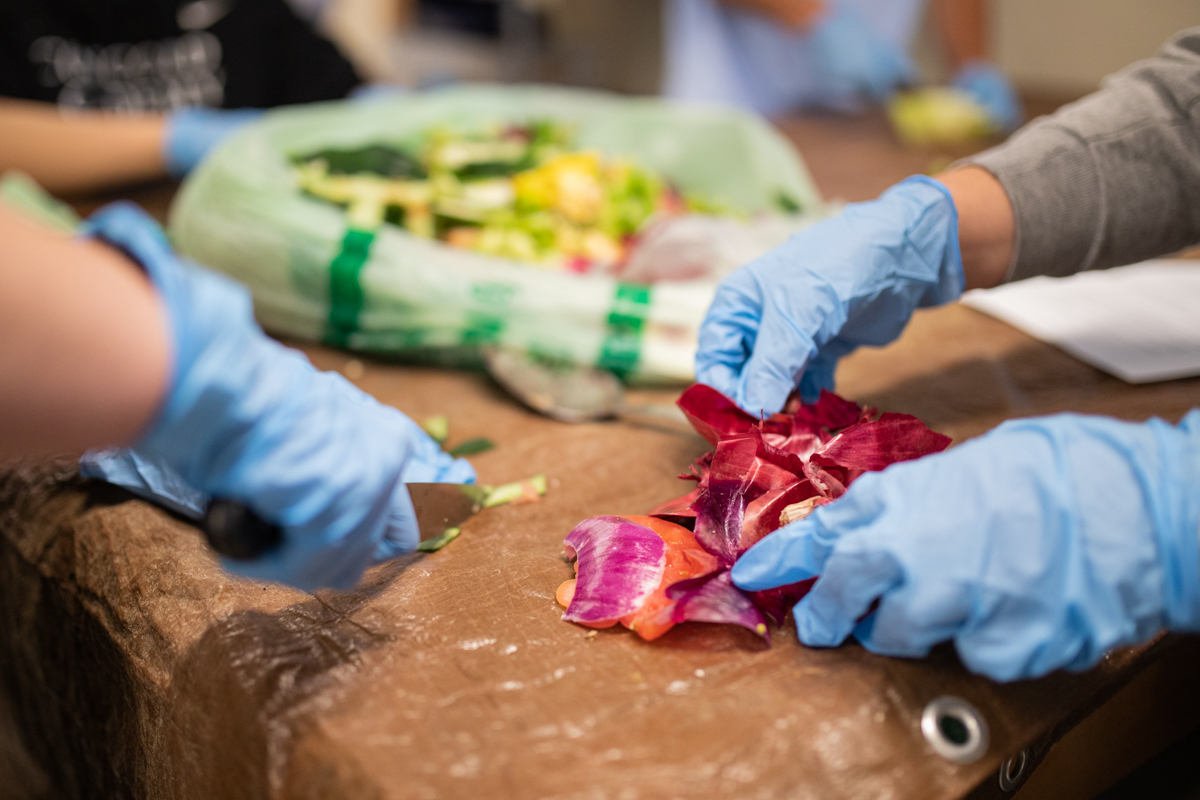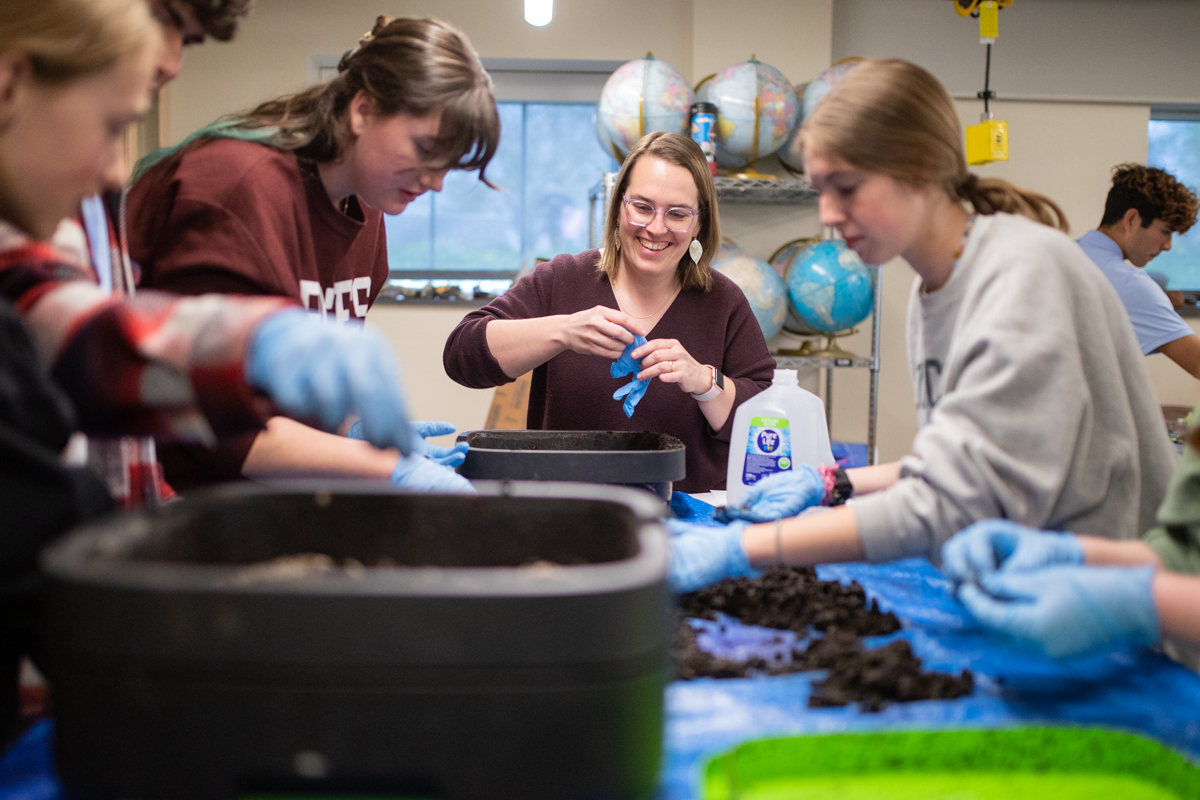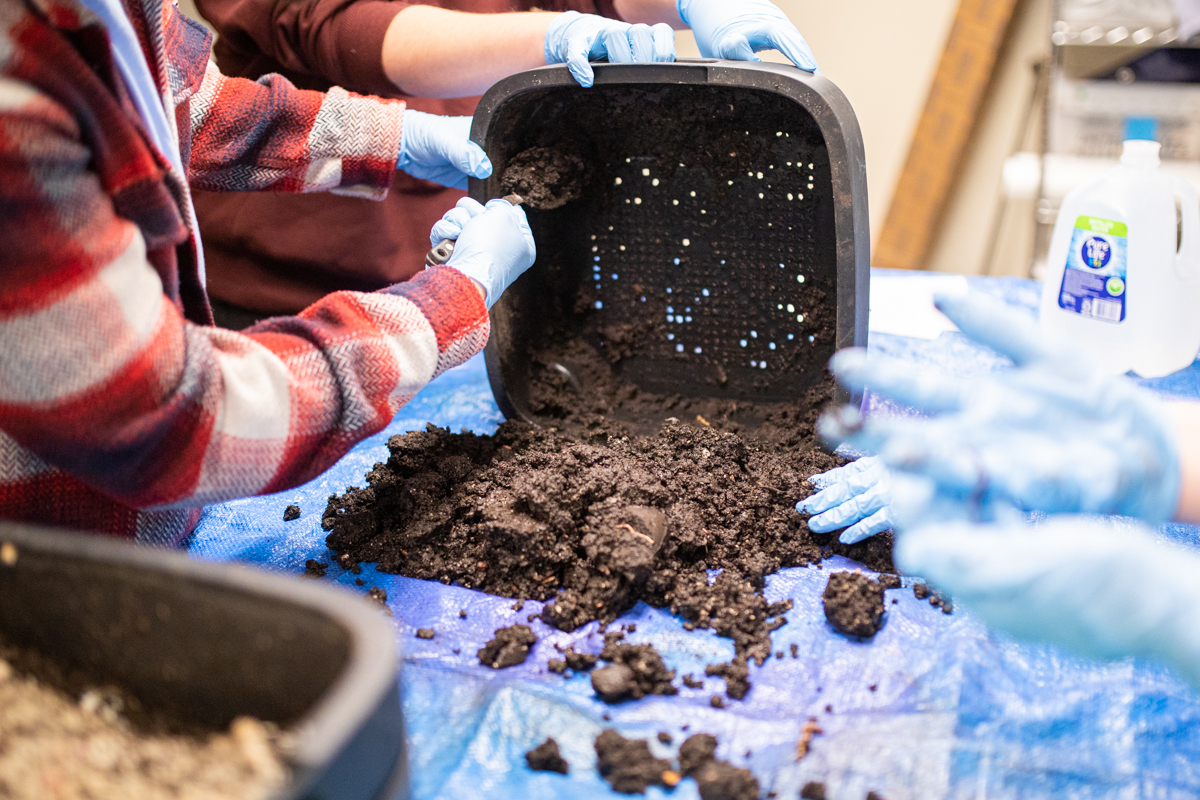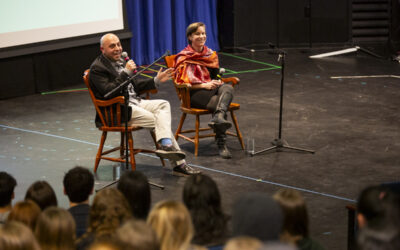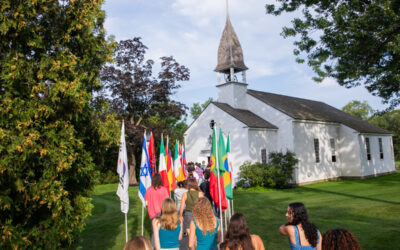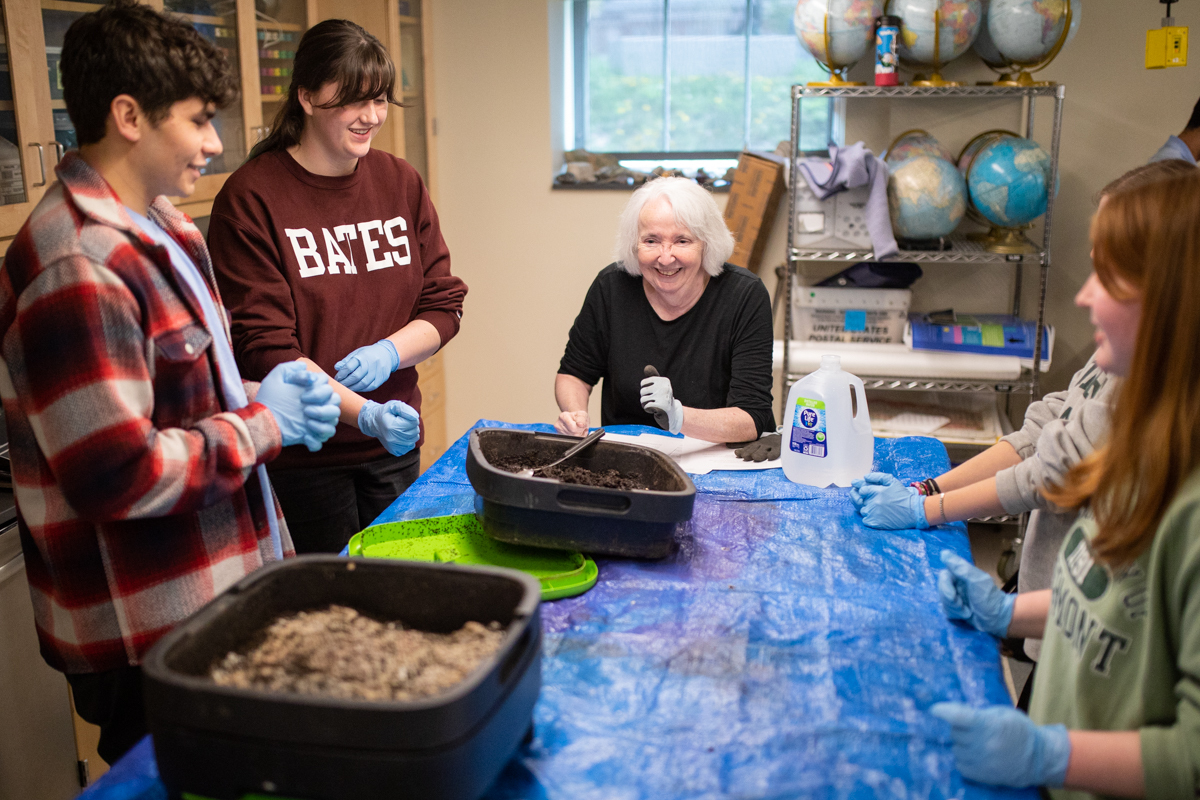
At the end of April, Dr. Elisabeth Bellows ’72 visited the classes of CA science teachers Kiley Remiszewski and Gretchen Roorbach. The students in this advanced environmental science course, focused on sustainable agriculture, had been considering how human food production practices have shaped our world, as well as the future of farming. Bellows came to give them hands-on experience with what Roorbach called an “easy and incredibly healthy and beneficial” alternative to conventional modern agricultural practices: vermicomposting, or composting with worms.
Bellows developed her presentation in coordination with Sally Behr Schendel ’72, who had gotten into worm farming through Heifer International in Honduras, where worms were being used to improve poor soil conditions. For her part, Bellows, a psychiatrist, took up gardening only after she retired. Now she’s passionate about her worms.
Vermicomposting uses worms to break down organic matter. It can be done by household or on a large scale, and while the worms themselves are tiny, this process may be no small component of addressing the climate crisis, as a replacement for conventional waste removal systems. When dinner scraps go into trash bags headed for the dump, the organic waste breaks down anaerobically, creating methane and carbon dioxide, worsening the agricultural greenhouse gas cycle. “When we’re taking our food waste and throwing it away in the landfill, instead of recycling it as part of the circle of life, we’re out of step with nature,” Bellows said.
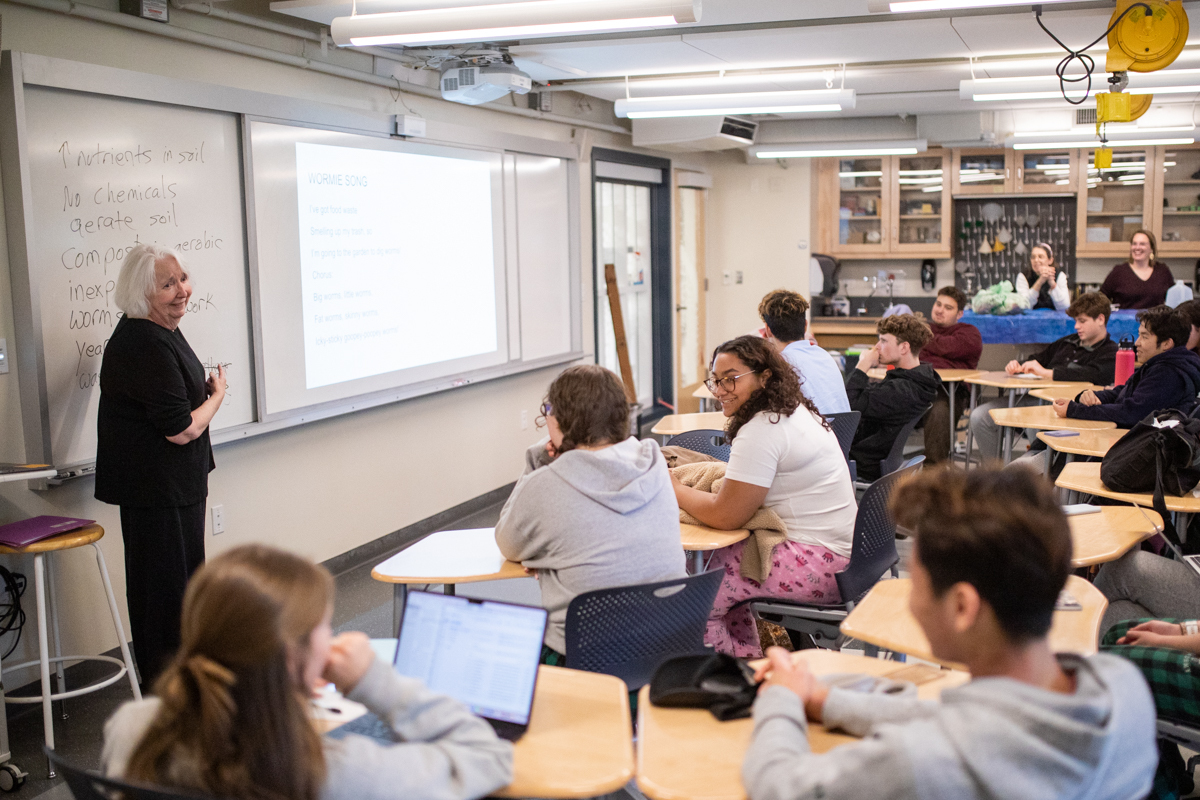
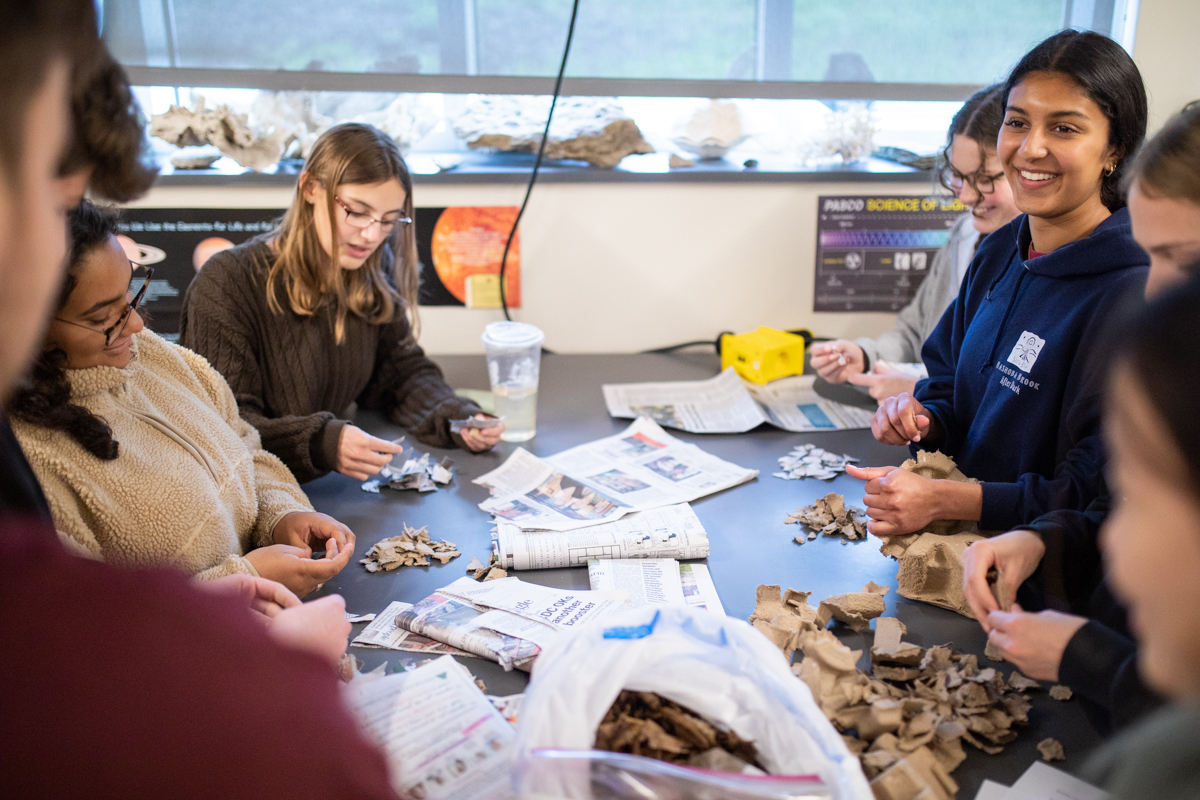
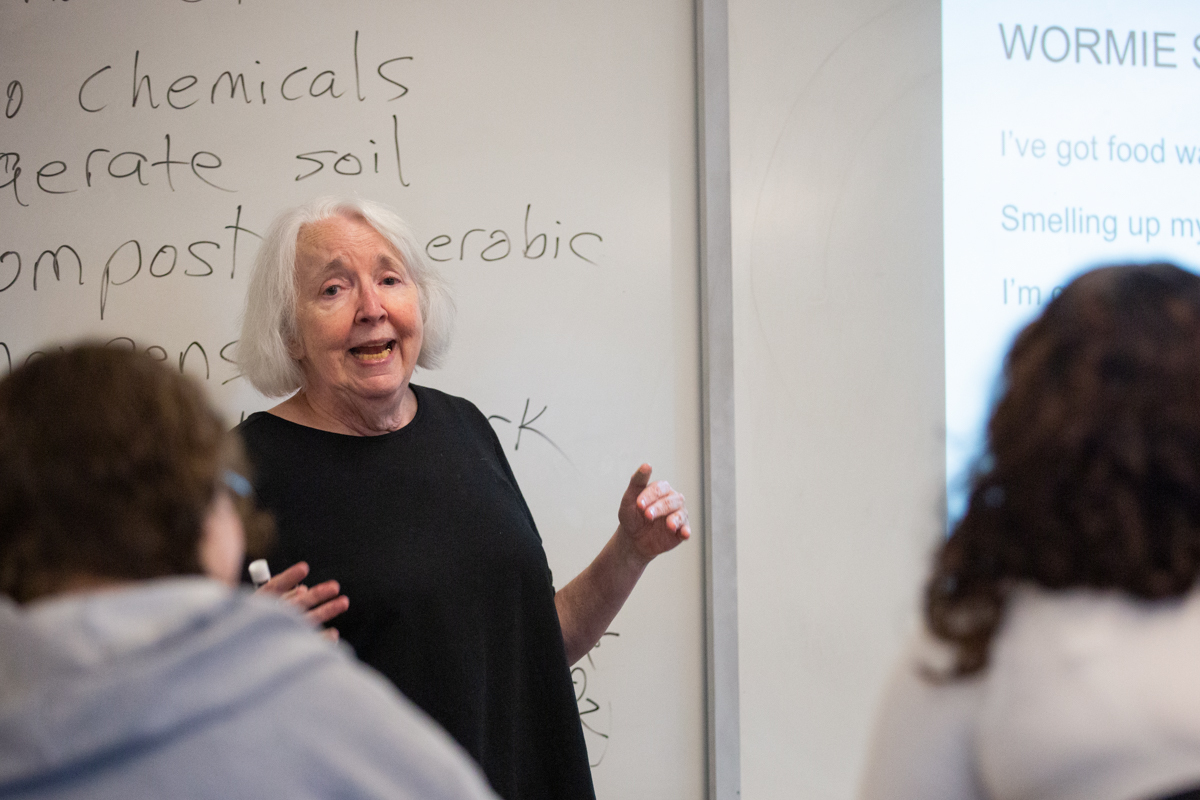
Even compared with microbial composting, vermicomposting is more efficient (producing less heat) and requires less effort (the worms do the work). Composting with worms naturally increases the nutrients in soil, as they provide non-chemical fertilizer. Worms also aerate the soil and increase its capacity for water retention.
CA produces 175 pounds of food scraps each week, which a commercial facility composts. Bellows engaged students in some basic calculations to determine the number of worms CA would need to break down that typical amount of organic waste: roughly 9,000 worms in an 8.8-square-foot bin. Detailing some of the common variables that need to be considered—the amount of bedding and water, and temperature, she then walked them through the process of setting up a worm farm. In four groups, students prepared containers, shredded newspaper and cardboard for bedding, chopped up dining hall salad leftovers, and learned how to separate compost from a worm bin Bellows had brought for demonstration.
The idea for this visit resulted from the class of 1972’s 50th reunion in 2022. Members of the first class to celebrate Earth Day as students of this school, these classmates embraced environmental stewardship through a combined reunion gift that began the Class of 1972 Green Seed Fund, which supports sustainable initiatives at Concord Academy. Since then, alums have kept in touch about ways they might contribute in the classroom.
“This experience was right in line with what we’ve been learning about alternative agricultural practices, composting, and food waste,” Remiszewski said. “I’m glad we could make this CA connection.”
